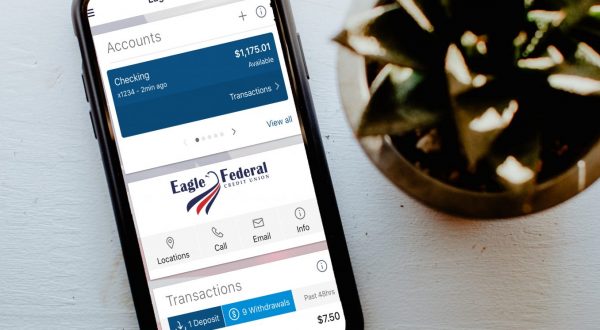Upon first hearing the terms “fraud” and “scam” one may think they are the same. In reality, they are very different. When a person is scammed, it is typically a transaction they authorize. When a person is a victim of fraud, it is typically through a transaction that they did not know about, nor authorize. Your credit union or bank will most likely help you to recover your money for fraudulent activity on your accounts. You may not be so lucky if you are scammed out of your money.
It is important to us at Eagle that we make you aware of scams that we either see or hear about and hopefully safeguard you from becoming a victim.
Zelle Scam
One easy way for scammers to get your money is through money transfer apps such as Zelle, Cash App, and Venmo. The first rule of thumb is to NEVER send money to anyone you do not know. Sending money to someone through one of these apps is equivalent to giving someone cash. You have no recourse to get your money back.
According to the Better Business Bureau, one newer scam using Zelle is when purchasing items on Facebook Marketplace or similar sites. Scammers will want to pay you through Zelle and ask for your email address. Instead of getting paid, you get an email from what looks to be an authentic Zelle address. It states the person had a Zelle Business account and you must upgrade to a Zelle Business account to receive your money. There is no such thing as a Zelle Business account. Stop the transaction and correspondence there because they are trying to scam you. They are not interested in actually purchasing anything from you.
Spoofed Phone Numbers
Did you know scammers can spoof business phone numbers? It is becoming more and more common these days. Scammers can copy your financial institution’s phone number and call you posing as an employee. The person then asks for account information under the guise that your account has been tampered with and they are investigating. Once the scammer has your login information, they have full access to your accounts and money. Be advised that Eagle, nor any financial institution for that matter, will ever initiate a call to you and ask you for your account information. Unless you are working on a loan or other transaction with your financial institution and you receive a call from someone claiming to be an employee, never give out any information. If you are unsure if the call is legitimate, hang up and call your financial institution back.
Wire Transfer Scams
Wiring money to someone you know is a convenient way to transfer funds, but it’s also a common method used by scammers to steal money. MoneyGram and Western Union are both reliable options for sending money quickly around the world, but it’s important to be cautious when wiring money to anyone you haven’t met in person.
The Federal Trade Commission recommends several ways to protect yourself from money wiring scams, including:
- Never wire money to someone you haven’t met.
- Avoid wiring money to people claiming to be government officials such as the IRS or Social Security office.
- Never wire money to someone who pressures you to pay immediately.
- Never wire money to someone who tries to sell you something over the phone.
Additionally, it’s illegal for telemarketers to ask for payment via wire transfer, so be wary of anyone selling something over the phone who requests this type of payment. By following these tips, you can help protect yourself against money wiring scams and keep your funds safe
Buying and Selling Vehicle Scam
Selling a used car on social media is becoming increasingly popular, but as a buyer, there are a few things you should keep in mind. Before making a purchase, ask the seller for maintenance records to ensure the vehicle has been well-maintained. Having a mechanic inspect the car before buying it is also a good idea, which can save you from purchasing someone else’s problem. If you find a deal, inquire about it with the seller. If they tell you, many people are vying for the vehicle but they will hold it for you with a deposit, walk away. This is a scam and likely there is not even a vehicle for sale. Always meet the seller in a public place and consider completing the transaction at a neighborhood express DMV and notary office, where you can ensure that all necessary paperwork is completed correctly and efficiently. If you cannot get to an office, you can always meet in a public place and contact a mobile notary who will come to you.
As a car seller, it is crucial to be vigilant and cautious when dealing with potential buyers. Always insist on cash payments and avoid electronic forms of payment like PayPal. If you choose to accept a certified check, make sure to accompany the buyer to their financial institution and watch the teller prepare the certified check. Be wary of buyers who offer to purchase your vehicle sight unseen and send payment via electronic transfer. This should raise a red flag and you should stop communication immediately. Remember to never release the title to your vehicle until you have received a cash payment. By following these simple tips, you can ensure a secure and successful car-selling transaction.









